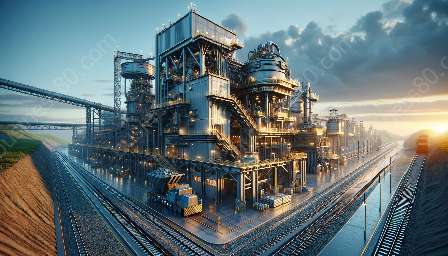Aluminum refining is an indispensable process in the metals & mining sector that involves the purification and extraction of aluminum from its ore. This comprehensive guide delves into the methods, technologies, and environmental considerations in aluminum refining, and its compatibility with aluminum mining.
Understanding Aluminum Mining
Before delving into aluminum refining, it's essential to comprehend the initial stage: aluminum mining. It involves the extraction of bauxite, an aluminum-containing ore, through open-pit or underground mining methods. The extracted bauxite undergoes crushing and washing to remove impurities and obtain the desired concentration of aluminum oxide.
The Significance of Aluminum in Metals & Mining
Aluminum, renowned for its lightweight, corrosion-resistant, and malleable properties, is a key metal in the metals & mining industry. Its applications span from aerospace and transportation to construction and packaging, making it a sought-after commodity in various industrial sectors.
The Art of Aluminum Refining
Aluminum refining is a multi-step process that involves the extraction of aluminum oxide from bauxite and its subsequent conversion into pure aluminum. The Bayer process and the Hall-Héroult process are the two primary methods employed, each with its distinct stages and chemical reactions.
The Bayer Process
The Bayer process begins with the extraction of aluminum oxide from bauxite using alkaline solutions, resulting in the production of alumina, a precursor to pure aluminum. It facilitates the removal of impurities and the enrichment of aluminum oxide, preparing it for further refining.
The Hall-Héroult Process
Following the Bayer process, the obtained alumina is subjected to the Hall-Héroult process, an electrolytic method that involves the smelting of alumina in molten cryolite. This process leads to the extraction of pure aluminum through electrolysis, utilizing carbon anodes and cathodes to facilitate the separation of aluminum from oxygen.
Technological Advancements and Innovations
The modern era has witnessed significant technological advancements in aluminum refining, leading to improved efficiency, reduced environmental impact, and enhanced sustainability. Innovations such as advanced electrolysis technologies, waste heat recovery systems, and carbon capture and utilization initiatives have revolutionized the aluminum refining landscape, aligning it with the principles of sustainable development.
Environmental Considerations and Sustainability
Aluminum refining, like any industrial process, necessitates a keen focus on environmental conservation and sustainability. Initiatives to minimize energy consumption, mitigate emissions, and implement closed-loop recycling systems have garnered attention, contributing to a more sustainable and eco-friendly approach to aluminum refining and mining.
Conclusion
From the extraction of bauxite through mining to the intricate methods of aluminum refining, this comprehensive exploration has shed light on the captivating world of aluminum, a cornerstone of the metals & mining industry. The compatibility and interdependence of aluminum mining and refining underscore the significance of this process in meeting the global demand for aluminum, ensuring its sustainable production, and contributing to diverse industrial applications.

